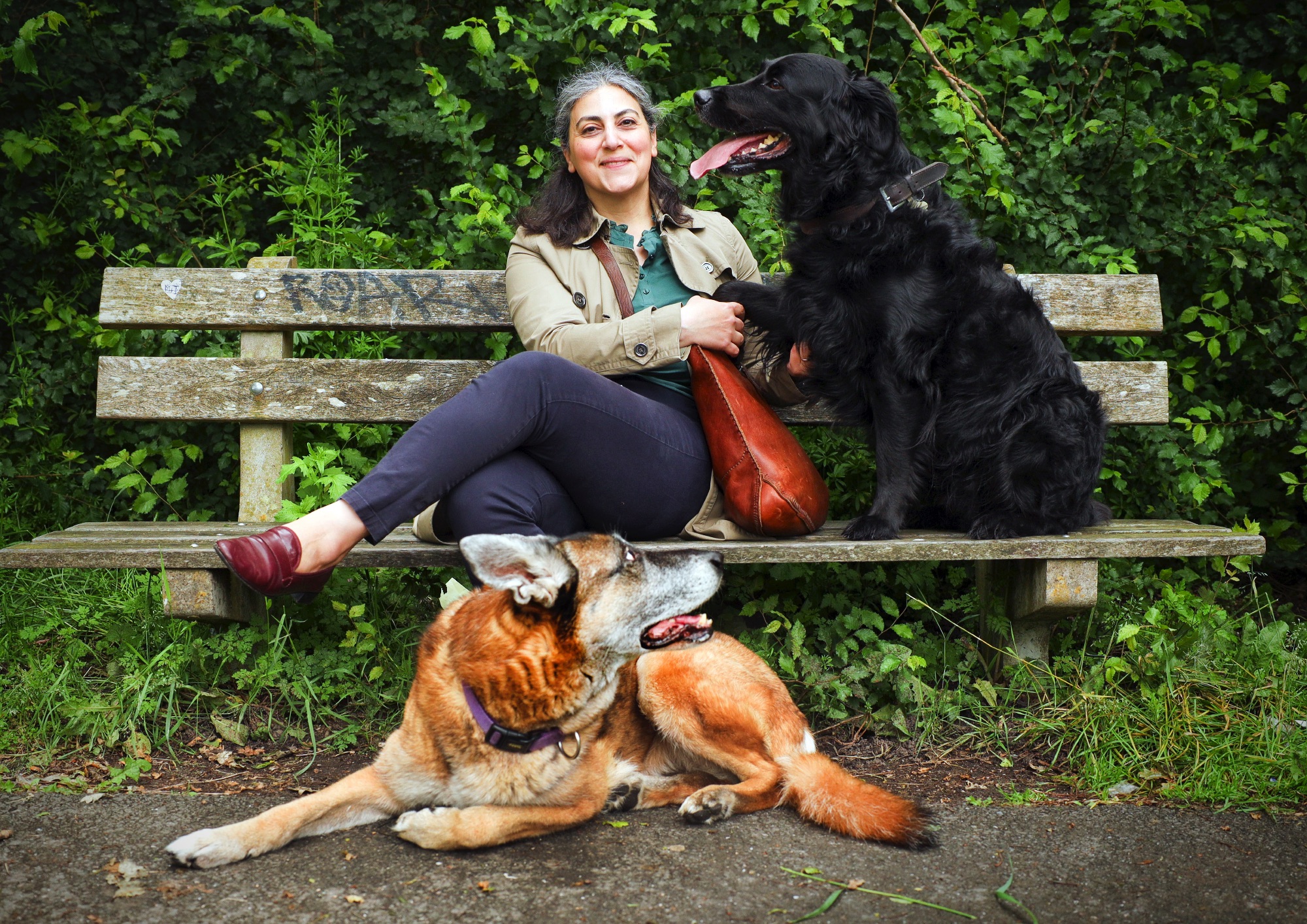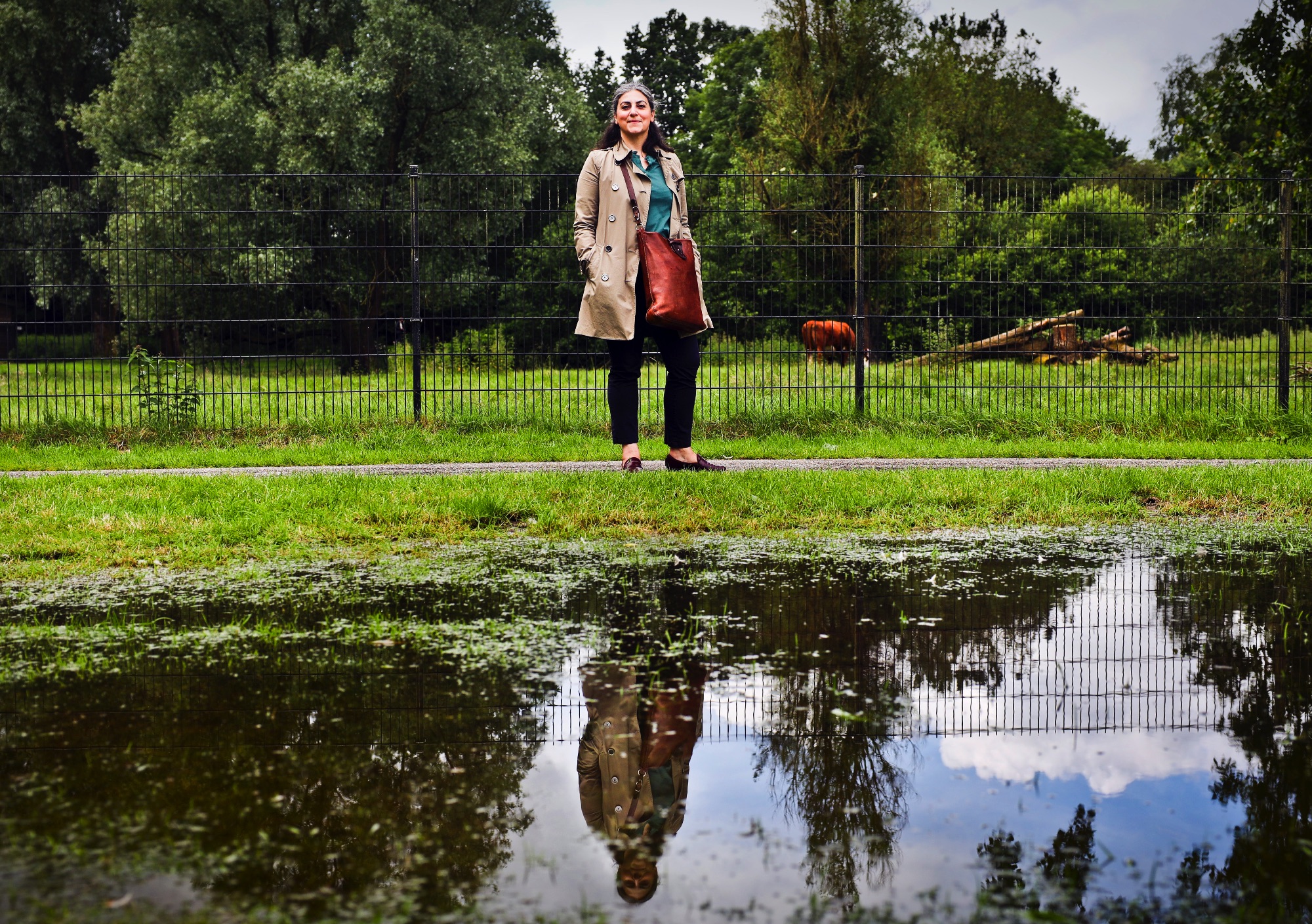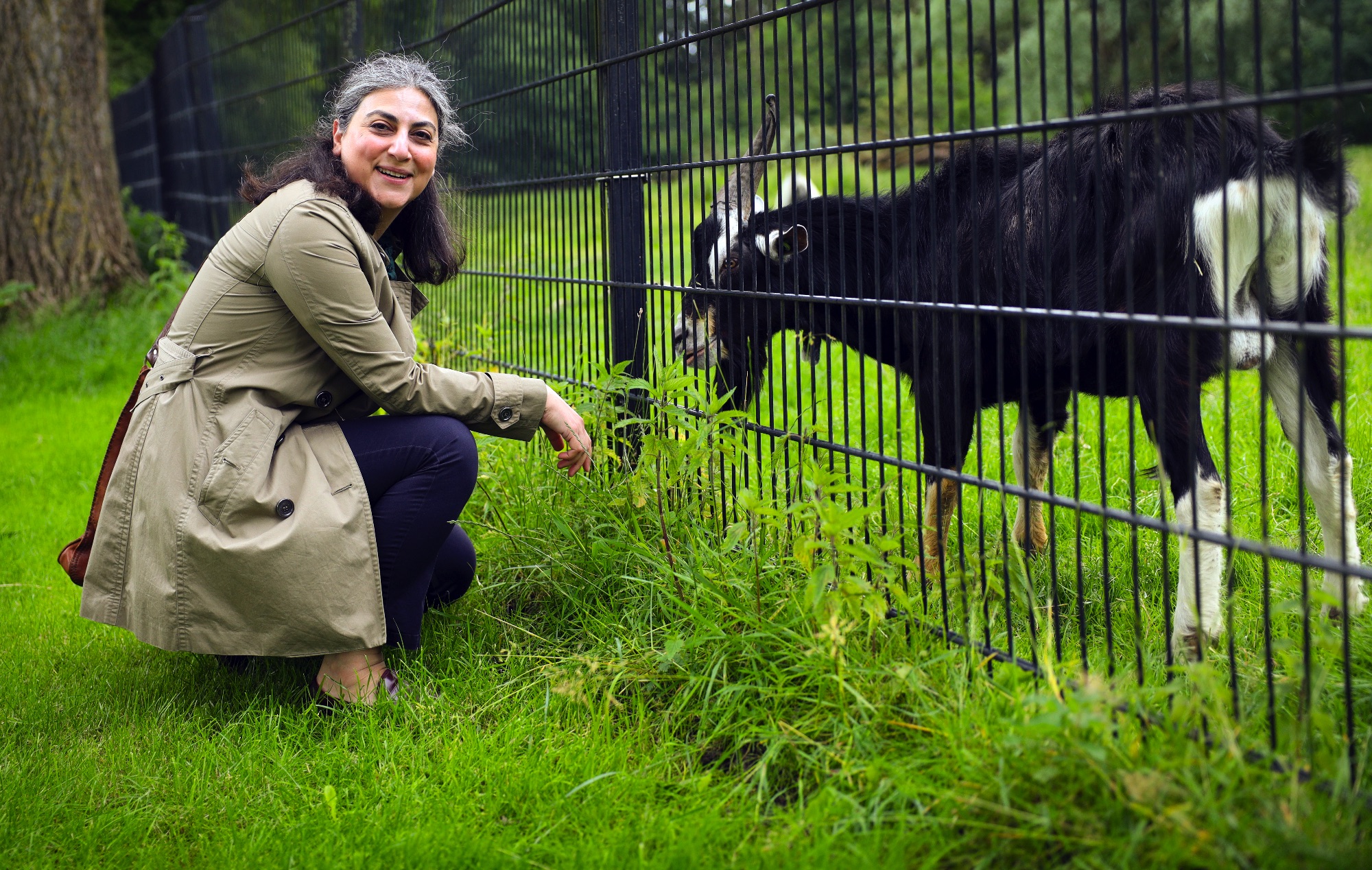‘We zijn veel meer verbonden met onze verre voorouders dan we denken’
Zestienduizend jaar geleden maakten mensen al kunst voor hun plezier, beschikten ze over geavanceerde technologieën, zorgden ze voor elkaar en waren ze dol op hun honden die hun metgezellen waren. "Het waren beschaafde mensen zoals jij en ik", zegt prof. dr. Inanna Hamati-Ataya, hoogleraar Mondiale Internationale Betrekkingen aan de Faculteit der Letteren. "Onze verre voorouders hadden ook te maken met klimaatverandering, migratie, technologische innovaties en veranderende samenlevingen en culturen. Een dieper begrip van hoe zij hiermee omgingen, helpt ons om het heden te begrijpen en een beter idee te krijgen van onze toekomst."
Tekst: Theone Joostensz | Foto's: Henk Veenstra

Hoe kan het dat innovaties zoals het fermenteren van voedsel overal ter wereld onafhankelijk van elkaar ontstonden? Hoe komt het dat de aardappel een van onze belangrijkste voedingsmiddelen is terwijl die niet van origine in Europa voorkomt? Om dit soort mysteries te ontrafelen, moeten we diep in de geschiedenis duiken, en dat is precies wat Inanna Hamati-Ataya doet. Ze onderzoekt hoe kennis en technologische innovaties op het gebied van landbouw en voedselproductie zich sinds de vroege geschiedenis over de aardbol hebben verspreid. En hoe deze transformaties bepalend zijn voor de waarden en machtsverhoudingen binnen de wereldpolitiek. Ze schrijft hier een wetenschappelijk boek over in vier delen en wil haar onderzoek ook verwerken in een populair wetenschappelijk boek.
Agrarische revoluties
Aanvankelijk begon Hamati-Ataya haar onderzoek bij de eerste agrarische revolutie, zo’n tienduizend jaar geleden, toen we overschakelden van een leven als rondtrekkende jager-verzamelaars naar een gesetteld bestaan als landbouwers. "De eerste agrarische revolutie was een belangrijke transformatie die grote impact had op hoe wij met de aarde en met elkaar omgingen", zegt ze. "Datzelfde geldt voor de twee daaropvolgende agrarische revoluties: de mechanisatie in de landbouw en de ‘groene’ agrarische revolutie die aanzette tot intensieve landbouw, en waarvan we tot op de dag van vandaag de wrange vruchten plukken."
Langzaamaan raakte ze er echter van doordrongen dat die wereldwijde overdracht van kennis en technologie al veel eerder plaatsvond: honderdduizend jaar geleden al trokken er mensen over de aarde die hun kennis en cultuur verspreidden. Hamati-Ataya besefte dat het hier om langdurige en grote processen gaat die je alleen kunt begrijpen vanuit een breder perspectief. "Ik ging me verdiepen in de prehistorie, de periode in de geschiedenis vóórdat er sprake was van agricultuur. Welke kennis en technologie gebruikten de mensen toen? Hoe gingen ze om met hun omgeving en hoe was hun maatschappij georganiseerd? Onze algemene opvatting is dat de prehistorie een donkere, mistige tijd was zonder beschaving. Maar de mensen die toen leefden, maakten al kunst en gebruikten geavanceerde technologie. Ze konden zich aanpassen aan veranderende omstandigheden, ze zorgden voor elkaar en beschouwden hun honden als metgezellen. Dat is beschaving! Het is geweldig om te ontdekken dat wat wij zo uniek vinden aan onszelf, helemaal niet zo uniek is. We zijn veel meer verbonden met onze verre voorouders dan we denken. Dat creëert het krachtige besef dat je je ook verbonden kunt voelen met mensen die vandaag de dag leven. Dat is prachtig."
Door dit inzicht ging Hamati-Ataya anders kijken naar de recente geschiedenis, het heden en de toekomst. "Door onze verre geschiedenis te bestuderen, kunnen we veel grotere dwarsverbanden leggen. Migratie is bijvoorbeeld van alle tijden. Mensen verhuizen omdat ze moeten overleven of een beter leven willen; dat is altijd al zo geweest. Alleen kenden we voor het grootste deel van onze geschiedenis geen paspoorten en grenzen. Migranten brachten hun kennis, cultuur en voedsel met zich mee naar hun nieuwe community en tegelijkertijd pasten ze zich aan de omgeving aan. Samenlevingen zijn altijd continu in beweging, en dat is mooi."

Reizende aardappels
Hamati-Ataya kijkt bij haar onderzoek naar transformaties op macroniveau. Ze is geïnteresseerd in hoe nieuwe technologieën, gewassen en dieren zich in de loop van duizenden jaren hebben verspreid. "Er zijn verschillende agriculturen over de hele wereld, simpelweg omdat landschappen en ecosystemen verschillend zijn. Daardoor ontstaan er verschillende culturen die verschillende soorten voedsel produceren. Maar het achterliggende patroon is vaak hetzelfde: mensen passen zich aan de veranderingen in hun omgeving aan of doen daar zelfs hun voordeel mee. Er zit altijd een bepaalde logica achter een innovatie. Ondanks de verschillen zie je dat technieken, landbouwgewassen en dieren circuleren. Aardappels en tomaten reisden van Zuid-Amerika naar Europa en zijn nu niet meer weg te denken uit ons dieet. Afrikaanse rijst kwam in Zuid-Amerika terecht en tarwe belandde van het Midden-Oosten in Mexico. Als je op deze manier naar de wereld kijkt, dan zijn landsgrenzen niet interessant. Hoe mensen, gewassen en dieren van het ene klimaat naar het andere reizen en daar overleven, dát is interessant. En ook: wat zijn de ecologische grenzen waardoor iets niet kan overleven?"
Bij gebrek aan geschreven bronnen waar historici doorgaans hun informatie uit halen, maakt ze voor het reconstrueren van dit verhaal gebruik van bestaande onderzoeken door archeologen, klimatologen, paleontologen, antropologen en biologen. "Studies laten bijvoorbeeld zien dat het niet de eerste keer is dat we met klimaatverandering te maken hebben. We kunnen terugkijken en proberen te begrijpen hoe we ons hebben aangepast, welke gevaren we tegenkwamen en wat we daar nu van kunnen we leren."

Kweekvlees en verticale landbouw
Anno nu staan we aan de vooravond van de zogenaamde vierde agrarische revolutie die gekenmerkt wordt door een serie van innovaties om op een duurzame manier voedsel te produceren. Een van die innovaties is cellulaire agricultuur waarbij dierlijke producten zoals kweekvlees en leer worden gemaakt uit cellen zonder dat er dieren voor hoeven te worden geslacht. "In het derde deel van mijn boek ga ik in op hoe technologieën als cellulaire agricultuur en verticale landbouw onze interactie met onze omgeving veranderen", zegt Hamati-Ataya. "Het is echt een fascinerend scenario."
Inanna Ataya-HamatiVoordat ze naar Groningen kwam werkte Inanna Hamati-Ataya voor het Centre for Research in the Arts, Social Sciences and Humanities (CRASSH) aan de Universiteit van Cambridge. Ze richtte er het Centrum voor Global Knowledge Studies op dat nu deels opereert vanuit de Rijksuniversiteit Groningen. Samen met haar echtgenoot Hemelkart Ataya is Inanna mede-oprichter van een sociale onderneming, een spin-off van CRASSH, die zich richt op het behoud en de overdracht van eeuwenoude landbouwkennis die dreigt te verdwijnen als gevolg van klimaatverandering. "In Europa zijn er duizenden boerenbedrijven, vaak familiebedrijven, die in de problemen komen door klimaatverandering. De producten zie ze maken zijn gebonden aan de locatie en worden volgens een eeuwenoud procedé gemaakt. Denk aan kaas, wijn, marmelade of vleeswaren uit een specifieke regio. Als die regio niet meer kan produceren, dan gaat alle kennis verloren. Ons doel is dat deze boeren hiervoor gecompenseerd worden en dat tegelijkertijd die eeuwenoude kennis veilig gesteld wordt zodat deze wellicht kan worden geadopteerd door andere regio’s die haar blijven koesteren en ontwikkelen als gemeenschappelijk cultureel erfgoed." |
Meer nieuws
-
14 februari 2026
Tumor weg, maar waar zijn de woorden?
-
19 januari 2026
Digitalisering drijft kansarme burgers soms in het nauw
